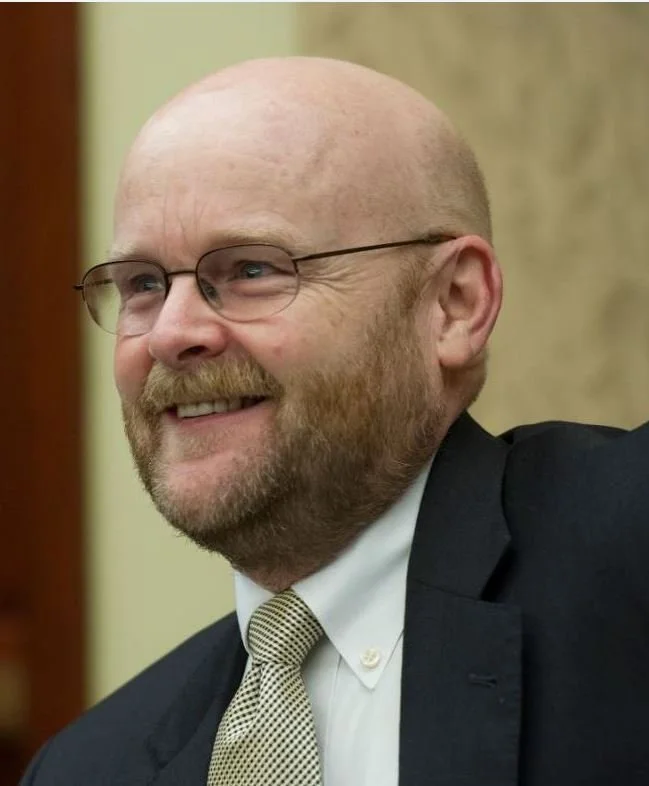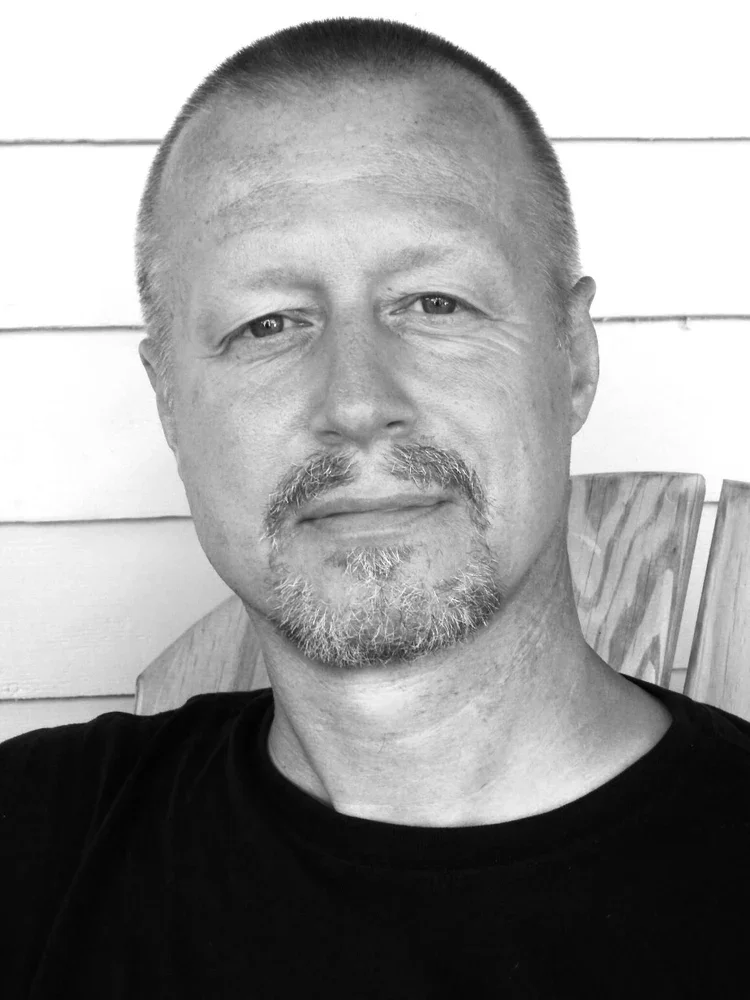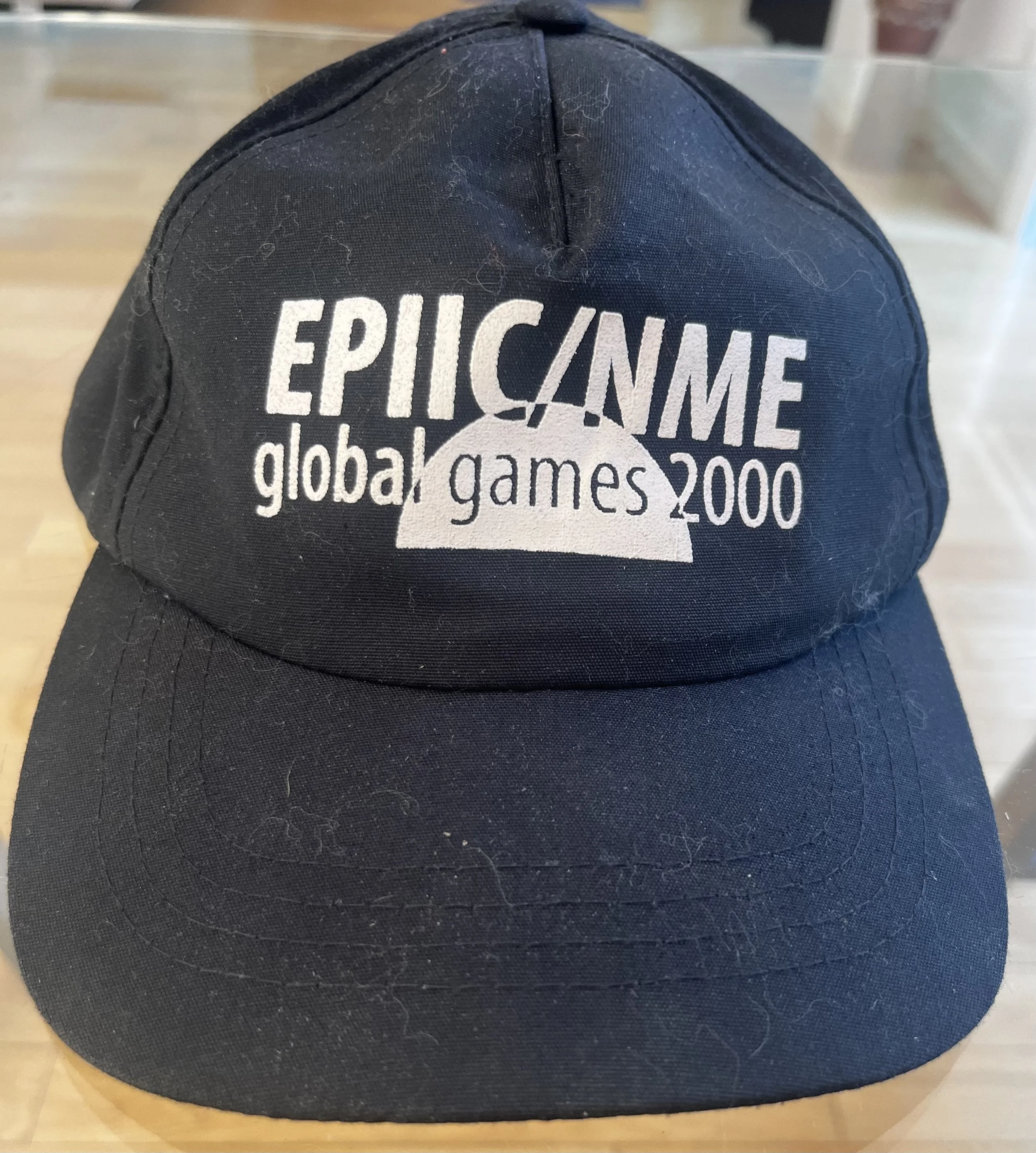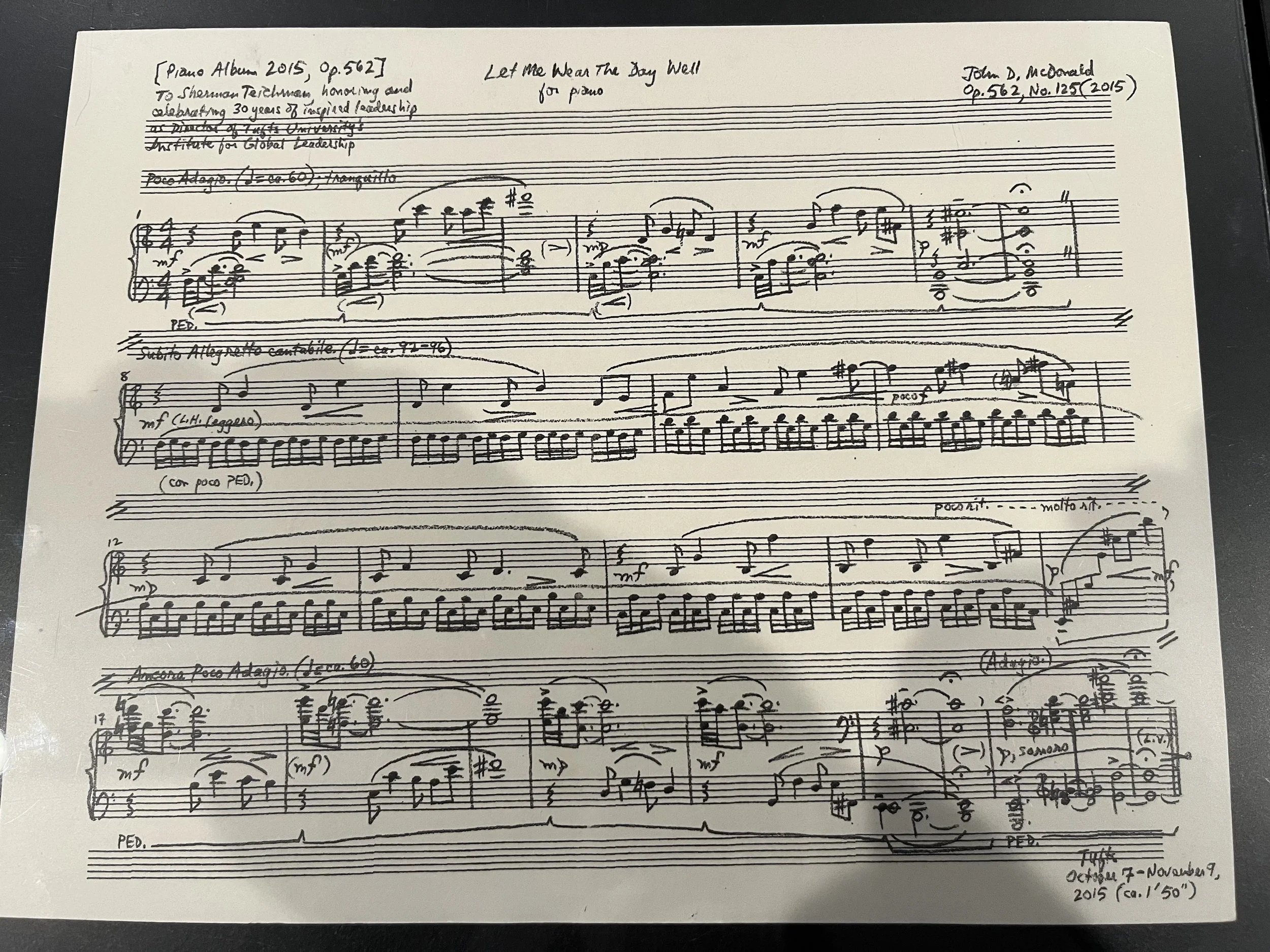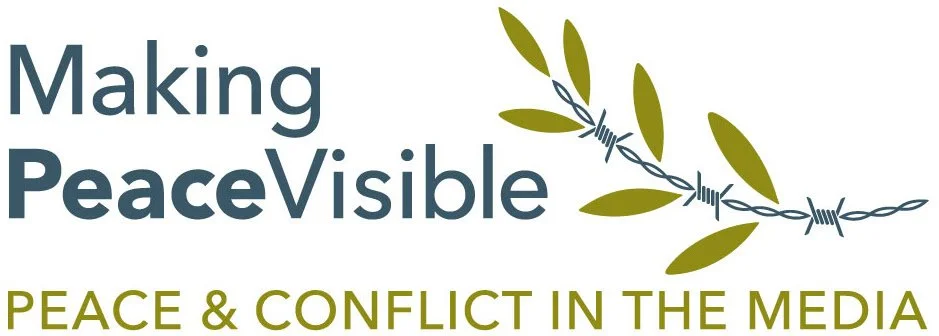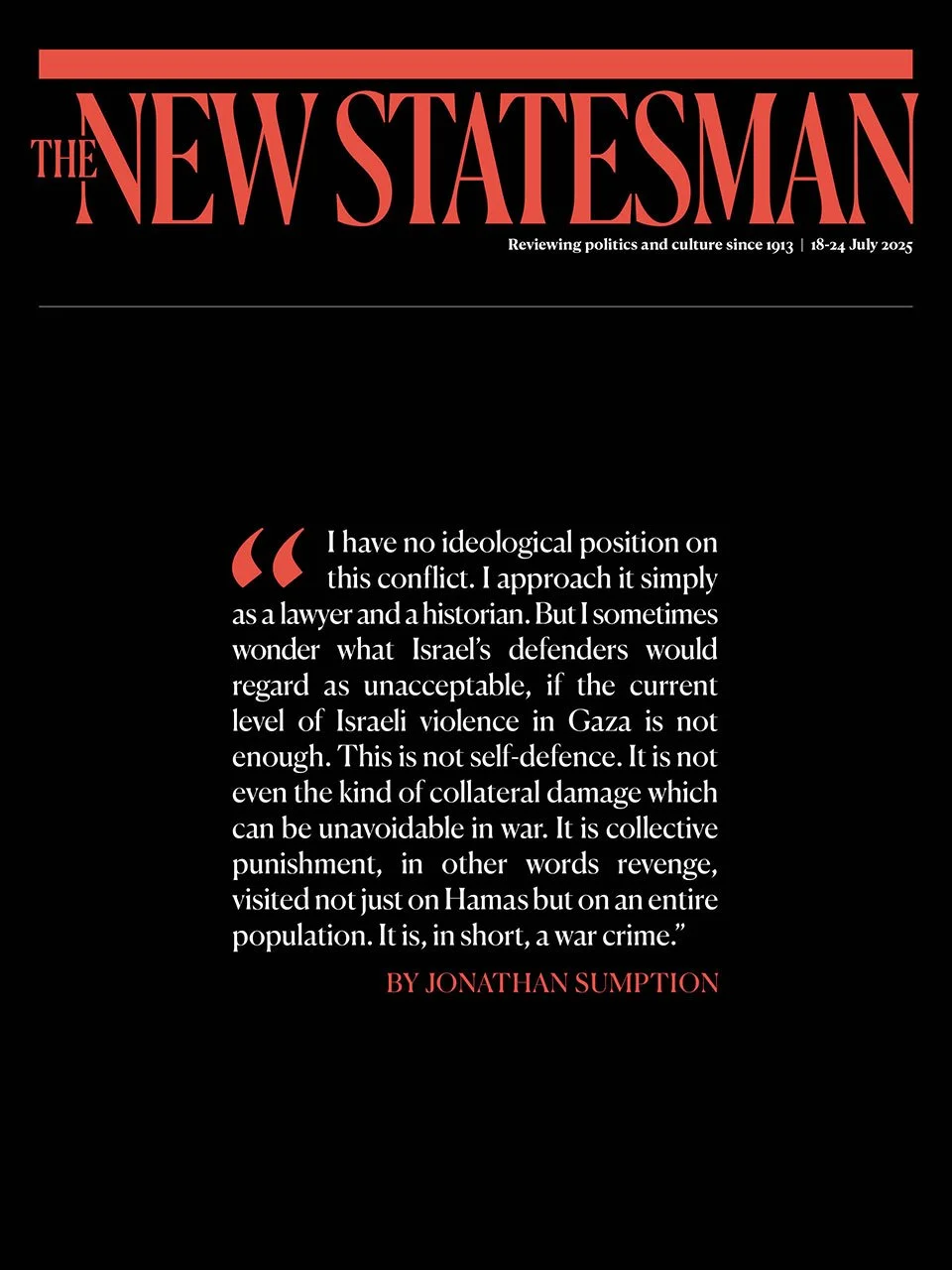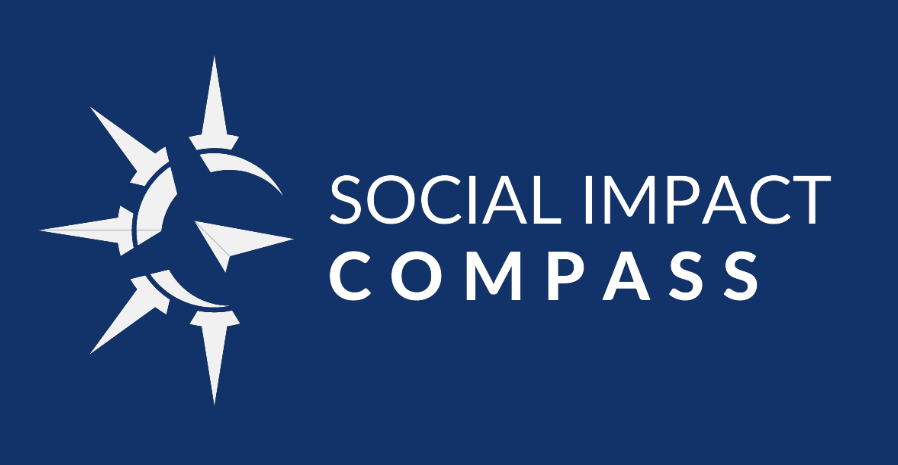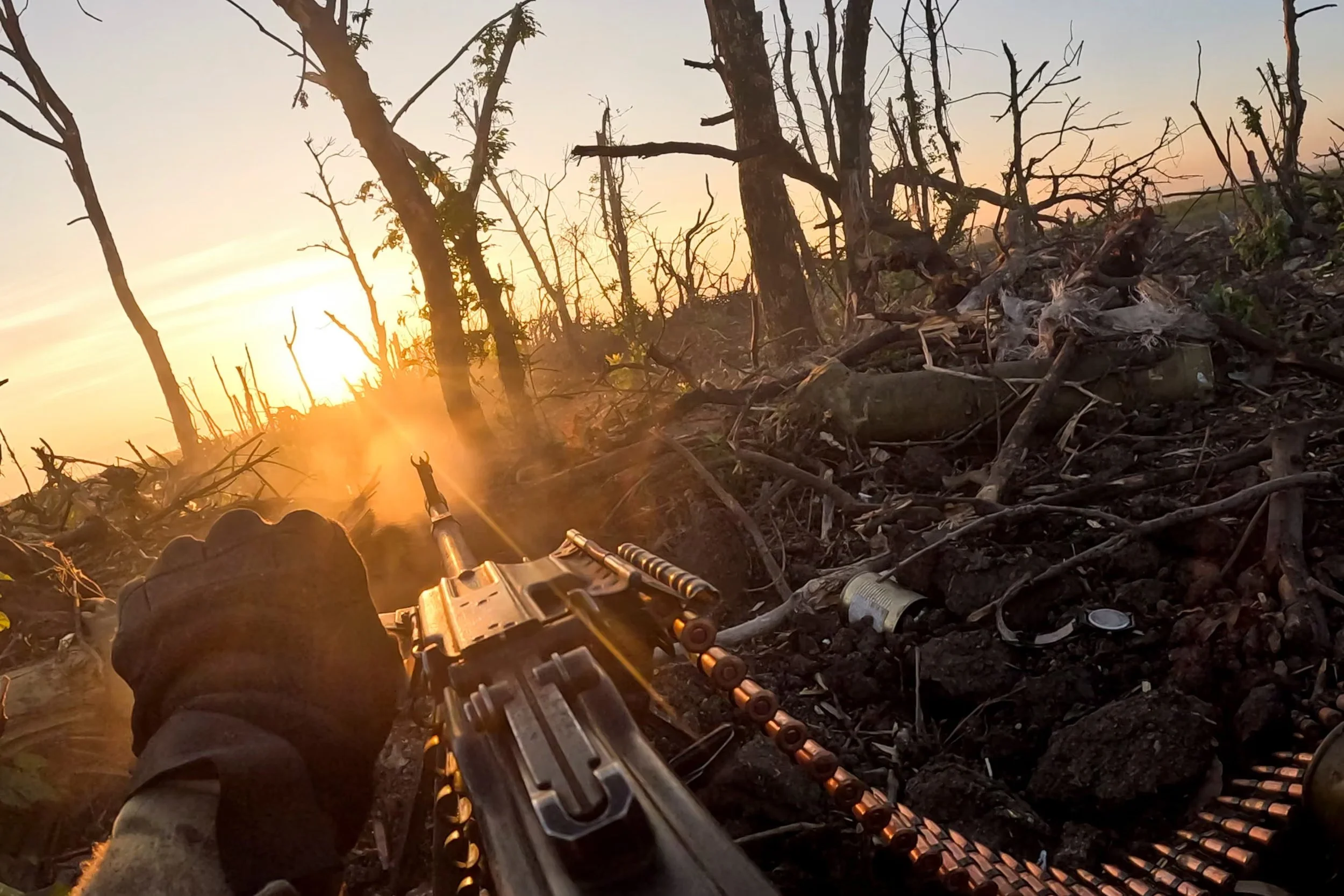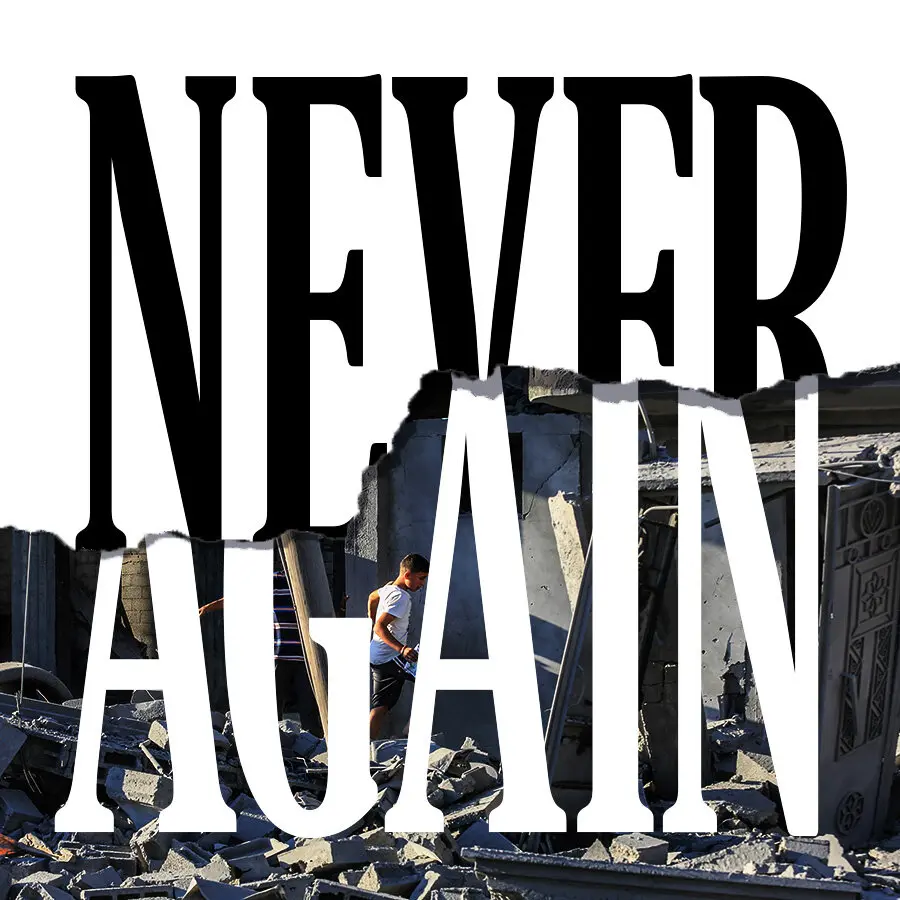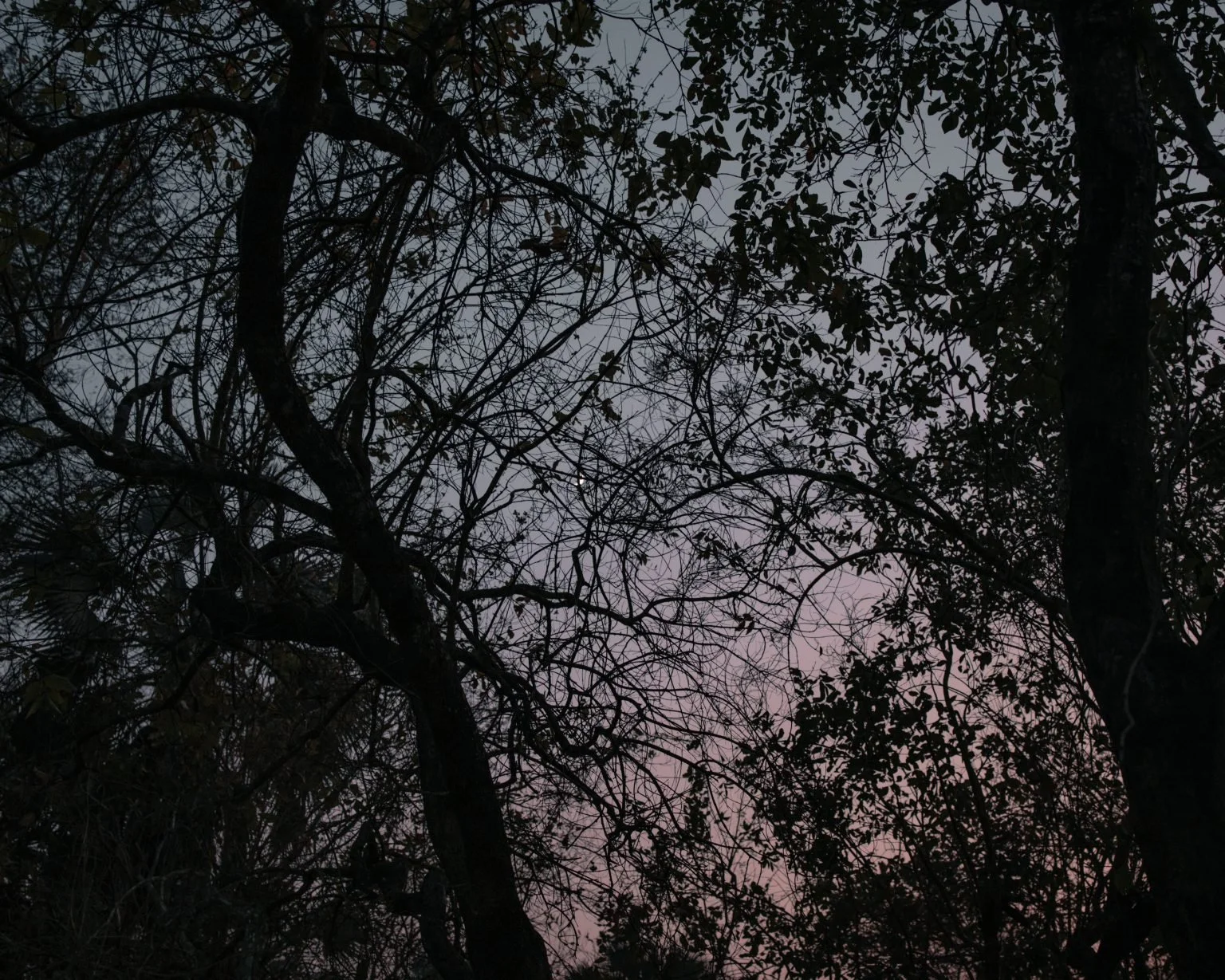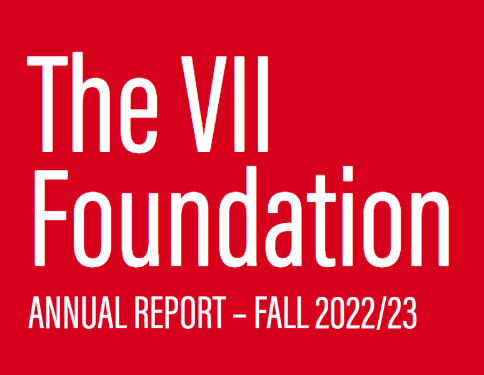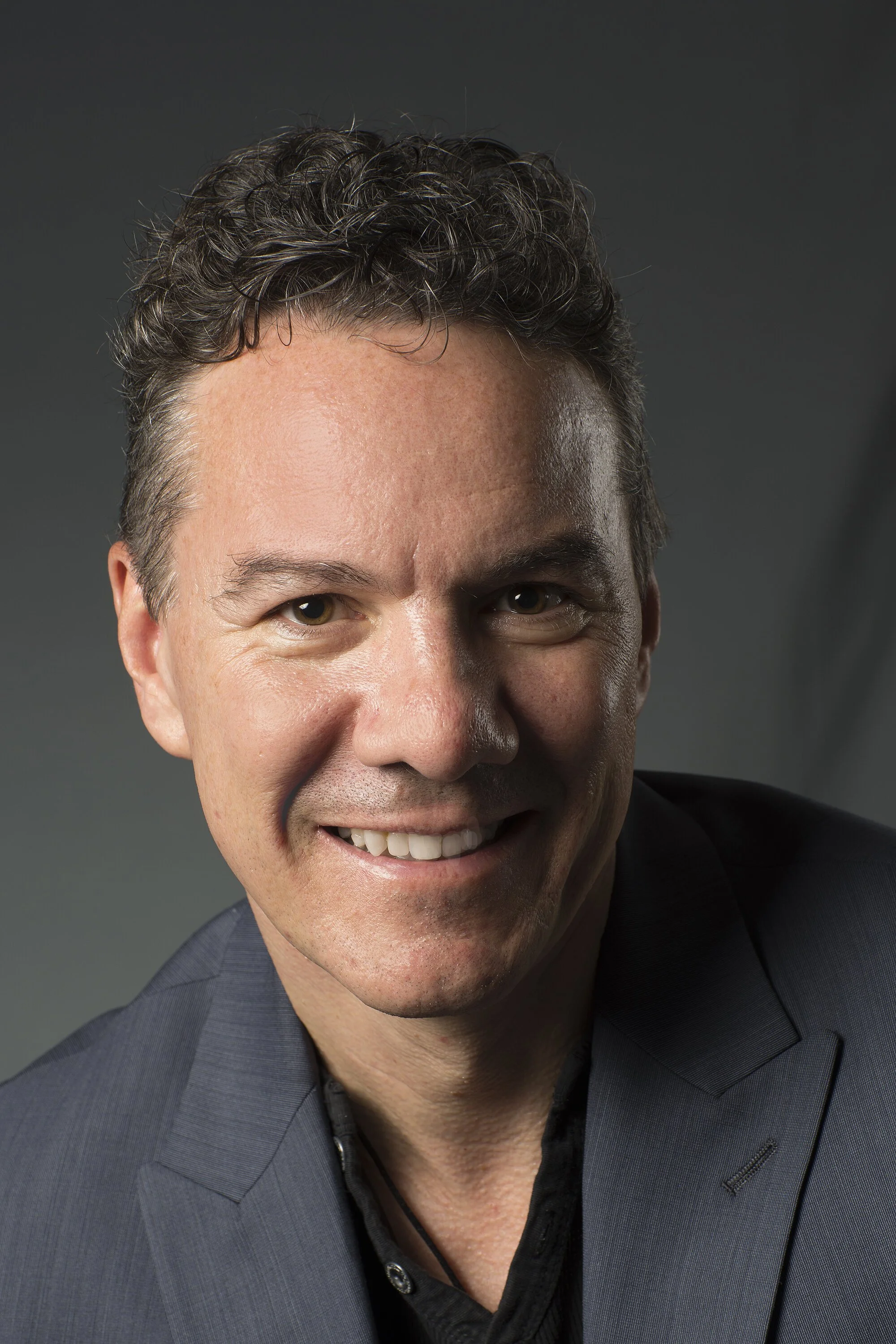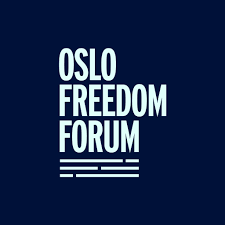C4ADS launches Horizons
I have had the fortune of working with C4ADS in my instruction at various universities. Several of my wonderful alumni, including Jack Margolin, have been directors of research at C4ADS. I urge that its platform be utilized: Horizons is a wonderful oppurtunity.
From uncovering illicit networks to tracing financial flows, the strongest investigations rely on fast, reliable access to publicly available information. But the software solutions that help uncover connections within this data have not evolved to meet the complexity of modern investigations.
So C4ADS built their own: Horizons.
John Shattuck
Professor John Shattuck is a distinguished international legal scholar, diplomat, and human rights leader with a career spanning over four decades. His professional journey began in the early 1970s as a law clerk in New York, before transitioning into academia as a visiting lecturer at Princeton University’s Woodrow Wilson School of Politics. He later served as National Staff Counsel at the American Civil Liberties Union (ACLU), where he worked on key federal court cases, including the successful challenge to Nixon's warrantless wiretapping program, Halperin v. Kissinger. In the late 1970s, Shattuck was appointed the director of the ACLU’s Washington office, where he led lobbying efforts on civil rights and liberties during the Carter and Reagan administrations.
Shattuck’s academic and diplomatic careers are equally distinguished. In 1986, he returned to academia at Harvard University as Vice President for Government, Community, and Public Affairs, while also teaching law courses at Harvard Law School. His involvement with the Kennedy School of Government further strengthened his role in public policy. He was later appointed by President Bill Clinton as Assistant Secretary of State for Democracy, Human Rights, and Labor, where he played a pivotal role in the establishment of the International Criminal Tribunals for Rwanda and the former Yugoslavia, and negotiated the Dayton Peace Agreement that ended the war in Bosnia. Shattuck also served as U.S. Ambassador to the Czech Republic, where he helped modernize the country’s legal system and supported civic education programs.
In 2001, Shattuck became the CEO of the John F. Kennedy Library Foundation, where he oversaw the digitization of historical records and significantly increased the foundation’s endowment. From 2009 to 2016, he served as the President and Rector of Central European University (CEU), transforming the institution into a globally recognized center for graduate education. Under his leadership, CEU expanded its interdisciplinary programs, launched the School of Public Policy, and created the Roma Access Programs, which are unique graduate preparation initiatives for Roma students. Shattuck also led the university through significant growth in research funding and faculty recruitment.
Shattuck’s legacy at CEU continues through the Shattuck Center on Conflict, Negotiation, and Recovery, named in his honor after his retirement. In addition to his work at CEU, Shattuck is currently a Professor of Practice at the Fletcher School of Law and Diplomacy and a Senior Fellow at Harvard University’s Kennedy School Center for Human Rights Policy. He is a frequent author of articles on international relations, human rights, civil liberties, and public service, and has written three books, including Freedom on Fire, a study of the international response to genocide in the 1990s.
A graduate of Yale Law School, Shattuck has received multiple honorary degrees and prestigious awards, including the Yale Law School Public Service Award, the Ambassador’s Award from the American Bar Association, and the Jean Mayer Global Citizenship Award from Tufts University. He has also been elected to the American Academy of Arts and Sciences. Shattuck’s extensive career in government service, academia, and diplomacy, along with his lifelong commitment to advancing human rights and civil liberties, has left an indelible mark on international relations and higher education. He continues to contribute to the field through his academic roles and advocacy for democracy, human rights, and the protection of privacy.
John has been a wonderful friend for decades. As an educator and teacher I can say with humility that he far surpasses me. I know this because my son, Nathaniel, as a Tufts undergraduate, took a seminar on US foreign policy at the John F. Kennedy Center in Boston, which John directed. One of the sessions was a simulation about the Cuban Missile Crisis. Nathaniel was given the role playing position of Kennedy’s advisor Theodore Sorenson, which he found to be one of the best days of his academic career. He prepared rigorously for the idea that he would be in a replica room of the President, with others that were making the decision whether or not to bomb Cuba. (Nathaniel and I agreed that he would not take any of my classes, it could have been too stressful for both of us :)) John participated in many of my forums, always provocatively and thoughtfully. He could create tremendous excitement in a very soft-spoken but erudite manner. I had the privilege and honor of working with John and our close friend Richard Balzer, on the memorial Petra Foundation, in honor of John’s first wife, an extraordinary effort to acknowledge remarkable heroes of marginalized communities, ranging from anti-death penalty activists to indigenous rights activists.
John was one of my first interviewees when I worked for the Council of European Studies and its publication EuropeNow. I interviewed him on the future of democracy and threats to democracy. Then, as always, he is a prescient thinker and knew firsthand of the threat when the Hungarian authoritarian prime minister Orbán sadly succeeded in forcing the relocation of the George Soros founded Central European University. John last spoke for me when I secured him as the keynote speaker for “Democracy on the Precipice”, an EPIIC “revival” after 10 years of my absence in 2025. Attending his keynote was a sort of homecoming for me. He began by acknowledging my impact.
John Shattuck and I served together as Senior fellows at the Carr centre for human rights at Harvard.
James Lindsay
James M. Lindsay is the Mary and David Boies distinguished senior fellow in U.S. foreign policy and director of Fellowship Affairs at the Council on Foreign Relations (CFR). His work at the Council focuses on U.S. national security policy, the U.S. foreign policymaking process, the domestic politics of U.S. foreign policy.
From 2009 to 2024, Lindsay was senior vice president, director of studies, and Maurice R. Greenberg chair at CFR, where he oversaw the work of the more than six dozen fellows in the David Rockefeller Studies Program as well as CFR’s fourteen fellowship programs. Before returning to CFR in 2009, Lindsay was the inaugural director of the Robert S. Strauss Center for International Security and Law at the University of Texas at Austin, where he held the Tom Slick chair for international affairs at the Lyndon B. Johnson School of Public Affairs. From 2003 to 2006, he was vice president, director of studies, and Maurice R. Greenberg chair at CFR. He previously served as deputy director and senior fellow in the foreign policy studies program at the Brookings Institution. From 1987 until 1999, he was a professor of political science at the University of Iowa.
From 1996 to 1997, Lindsay served as director for global issues and multilateral affairs on the staff of the National Security Council. He has also served as a consultant to the United States Commission on National Security/21st Century (Hart-Rudman Commission) and as a staff expert for the United States Institute of Peace's congressionally mandated Task Force on the United Nations.
Lindsay has written widely on various aspects of American foreign policy and international relations. His most recent book, co-authored with Ivo H. Daalder, is The Empty Throne: America’s Abdication of Global Leadership. His previous book with Ambassador Daalder, America Unbound: The Bush Revolution in Foreign Policy, was awarded the 2003 Lionel Gelber Prize, named a finalist for the Arthur S. Ross Book Award, and selected as a top book of 2003 by The Economist. Lindsay’s other books include Agenda for the Nation (with Henry J. Aaron and Pietro S. Nivola), which was named an "Outstanding Academic Book of 2004" by Choice Magazine, and Congress and the Politics of U.S. Foreign Policy. He has also contributed articles to many major newspapers and magazines, including Foreign Affairs, the New York Times, the Washington Post, and the Los Angeles Times. He writes the blog The Water's Edge, which discusses the politics of American foreign policy and the domestic underpinnings of American global power. He also hosts the weekly podcast, The President’s Inbox.
Lindsay holds an AB in economics and political science with highest distinction and highest honors from the University of Michigan and an MA, MPhil, and PhD from Yale University. He has been a fellow at the Center for International Affairs and the Center for Science and International Affairs, both at Harvard University. He is a recipient of the Pew Faculty Fellowship in International Affairs and CFR International Affairs Fellowship. He is a member of CFR.
Lindsay was born and raised in Massachusetts and lives in Washington, DC.
Jim, in my mind, was one of the more perceptive and impactful thinkers about US foreign policy and had a powerful impact on my thinking about International Relations. He participated in several EPIIC symposia and helped me mentor individual students. He also was the person to whom I had the pleasure of nominating as Fellow for the Council of Foreign Relations.
John McDonald
Recently described as “the New England master of the short piece,” John McDonald is a composer who tries to play the piano and a pianist who tries to compose. He received the 2009 Lillian and Joseph Leibner Award for Distinguished Teaching and Advising from Tufts University, and was named the 2007 MTNA-Shepherd Distinguished Composer of the Year by the Music Teachers National Association.
John McDonald is a Professor of Music at Tufts University, where he teaches composition, theory, and performance. His output concentrates on vocal, chamber, and solo instrumental works, and includes interdisciplinary experiments. Before going to Tufts in 1990, he taught at Boston University, Longy School of Music, M.I.T., and the Rivers Conservatory. He was the Music Teachers National Association Composer of the Year in 2007, and served as the Valentine Visiting Professor of Music at Amherst College in 2016-2017. Mr. McDonald was Music Department Chair at Tufts from 2000 to 2003. He has served as an Artistic Ambassador to Asia, and is on the advisory boards of American Composers Forum New England, Worldwide Concurrent Premieres, Inc., and several other cultural and academic organizations.
His recent and in-progress projects include Peace Process (for basset horn and piano), The Creatures’ Choir (an evening-long song cycle for voice and piano), Ways To Jump (a choral work concerning frogs, commissioned by Music Worcester), Piano Albums 2005, 2006, 2007, 2008, and 2009 (collections of piano miniatures that attempt to chronicle some difficulties and joys of daily life through musical observation), Four Compositions for flute and piano, and a new work for saxophone and piano commissioned by the Massachusetts Music Teachers Association that responds to Schubert’s song cycle Winterreise. Pianist Andrew Rangell has just completed a recording (for Bridge Records; May 2009 release) of Mr. McDonald’s Meditation Before A Sonata: Dew Cloth, Dream Drapery, a piece which can function as a preamble to either of the monumental Charles Ives sonatas.
His recordings appear on the Albany, Archetype, Boston, Bridge, Capstone, Neuma, New Ariel, and New World labels, and he has concertized widely as composer and pianist. Recent performances at the Goethe Institut of Boston and at Tufts have been highly acclaimed. His solo piano recital of “Common Injustices” by twenty-five living composers prompted Richard Dyer of The Boston Globe to write “one can hardly imagine anyone else undertaking such a program, or playing it with such modest and unobtrusive but total musical and pianistic mastery.” Mr. McDonald has appeared with many ensembles and has maintained long-standing musical partnerships with soprano Karol Bennett, saxophonists Kenneth Radnofsky and Philipp Stäudlin, and several other prominent soloists. Since 2004 he has performed as pianist for The Mockingbird Trio (with Elizabeth Anker, contralto and Scott Woolweaver, viola).
John has been a close colleague and friend for decades during my time at Tufts University. He is an inspiring teacher and remarkable composer and musician. We collaborated in many ways. I am reminded of a fun prelude to a session during my EPIIC “Global Sports and Politics” year where his avant garde musical group, New Music Ensemble (NME) performed. I remember John playing his original music composition on a baby grand piano whose upraised piano cover was encased in netting with hundreds of ping-pong balls cascading as he played. John surprised me a number of times by composing and playing original compositions in my honor at different intervals in my 30-year career: my 20th, 25th and 30th anniversary.
There was also a delightful moment where he asked me to write a letter of recommendation for one of our common remarkable students, Rich Janoksky. Rich and his band performed at the EPIIC symposium “Future of Democracy” his original composition Habibi (Friend in Arabic) and then jammed with the jazz icon Chick Corea in an unforgettable improvisational concert.
Rich after receiving PhD at the University of Chicago in Ethnomusicology, and teaching at SOAS in London was applying for a tenure track faculty position at Tufts, his alma mater. Rich not only succeeded in gaining this position but is now the chairman of the music department at Tufts.
John also composed a beautiful piece in honor of an extraordinary mentor of mine, the renowned professor Stanley Hoffmann - the former head of the Center of European Studies at Harvard University, to whom I dedicated my last EPIIC year, “The Future of Europe”, in 2016.
Hariniy Gunaseelan
I am Hariniy Gunaseelan, you can call me Niy. I am a Data Science major, minoring in Philosophy. I am someone that has a deep curiosity for AI, large language models, and the ways technology intersects with art and philosophy, especially in light of the rise in AI. Besides being the lead singer (and the guitarist, occasionally) of my college band, “The Surrogates”, I am also an indie singer-songwriter, a poet, and an artist of multiple mediums. My wish is to sing for people that can’t speak or find acceptance and make art more accessible to anyone and everyone. I believe that the study and expression of what it is to be human is the greatest of all. My favourite things to do when it’s raining and I am stuck at home are drinking tea, watching video essays, crying about AOT (It’s an anime), creating art to add to my room, riling up the dogs, singing to my birds that will only listen to either Queen or classical baroque music, and talking to my mom. As the Red Team Lead in this project, I directed the research, writing, editorial layout, and managed social media coordination. This process stretched me in every direction; it was challenging, fulfilling, and taught me how powerful patience can be. It helped me grow not just as a researcher, but as a collaborator and creator. I have deep respect for my mentors and my peers that made this project come so far! I am looking forward to making our Youth Red Team a bigger voice in our world that speaks for responsible and ethical AI use.
Guo Feng (GAVIN)
Guo Feng (Gavin) is the CEO and Managing Director of Yulele, a company at the intersection of entertainment, culture, and social impact. He is currently spearheading the establishment of a Los Angeles–based division of Yulele in collaboration with Janet Yang, Chair of the Academy of Motion Picture Arts and Sciences and a long-standing advocate for Asian storytelling in Hollywood. Under his leadership, Yulele also manages top-tier talent across film, theatre, and classical music. One of the company’s featured pianists has performed at major venues globally, including Carnegie Hall, and on prominent occasions such as the G20 Summit.
Before launching Yulele, Gavin built a successful career in finance. He served as Executive Director at Morgan Stanley Asia Limited (Hong Kong) and as Director at Warburg Pincus, gaining extensive experience in global investment strategy. He holds a Bachelor’s degree in English Literature and Economics from Peking University, and a Master’s in Management from Duke University.
Beyond business, Gavin has played an active role in public health and philanthropy. Yulele is the only “strategic partner” of the World Health Organization (WHO) in the entertainment sector, and three of its talents have been appointed as WHO Special Envoys of Public Health in China—a recognition of their contribution to initiatives in tobacco control and HIV containment in underserved regions. Gavin’s longstanding engagement with these issues has led to personal collaboration with WHO leadership, and their work has been widely reported across Chinese media.
In addition to his role at Yulele, Gavin serves as Executive Vice President of the Radio and Television Association of Hainan Province and is a member of the China Television Artists Association.
Learn more about his work here: http://www.yulele.com/
Sherman and Gavin first met during the Hong Kong and China Tufts Initiative for Leadership and International Perspective (TILIP program). Since then, Gavin has continued his journey at the intersection of business, creative media, and philanthropy, leading meaningful ventures while remaining deeply engaged in global impact and creative innovation.
J Barkath Aafreen
I’m J Barkath Aafreen, a thinker, a builder, a performer—and above all, a seeker. Curiosity has always been my guiding compass. It’s what drives me to question, explore, and engage with the world—not just on the surface, but in its deepest layers. Whether I’m decoding algorithms, dissecting global affairs, or diving into books on cognitive neuroscience; I’m in constant pursuit of understanding and impact.
Currently pursuing my B.Tech in Computer Science, I find myself deeply immersed in the evolving world of data science, AI/ML, and the philosophical underpinnings of generative AI. But for me, tech is never just about code. It’s about what lies beyond it—how we can transform raw data into meaningful experiences, how we can visualize knowledge in ways that change behavior, and how we can build intelligent agents that don’t just compute, but connect. My goal is to design not just functional AI, but expressive, human-centered systems that reflect empathy, emotion, and ethical awareness.
What excites me most is the integration of AI with fields like cognitive neuroscience and biology—the beautiful space where minds meet machines. The more I understand the brain and behavior, the more I realize the potential of designing AI that mirrors—not mimics—human thought. And it is in this interdisciplinary terrain that my curiosity blooms most.
But my journey isn’t confined to labs or lecture halls. As a district-level basketball player, I’ve learned the value of discipline, agility, and team spirit. The court has taught me how to handle pressure, how to adapt quickly, and how to lead with both clarity and composure. That spirit of resilience now powers my academic, technical, and creative pursuits.
Beyond STEM, I’ve long nurtured a passion for writing, reading, and storytelling. I believe that words are one of the most powerful tools we possess. I write not just to express—but to connect. My love for literature and communication fuels my content-creation efforts, especially those aimed at humanitarian causes, awareness campaigns, and youth engagement. I don’t just code, I communicate, and I don’t just inform, I inspire.
My interest in international relations and global systems was amplified after meeting Sherman—a mentor whose brilliance, humility, and mentorship sparked a new level of intellectual curiosity in me. That interaction wasn’t just a class discussion—it was a turning point. Since then, I’ve been motivated to explore how data science and diplomacy, security and software, ethics and engineering can all intersect to shape a more inclusive world.
Above all, I’m not just an academic or an enthusiast—I am a showman. I believe in the power of presence. Whether I’m performing on stage, networking in a room, or leading a project—I bring energy, emotion, and authenticity into everything I do because for me, learning is not a phase—it’s a lifestyle. Creation is not a skill—it’s a mindset. And curiosity? It’s not just what I have. It’s who I am.
Manaswini S
Hi! I'm Manaswini S, currently pursuing my B.Tech in Computer Science at Sai University. I believe that the pursuit of knowledge is a lifelong journey—one that began for me at a very young age. I have always been intrigued by the way the world functions and the various aspects associated with it. While curiosity usually kills the cat, for me, it has led to a wide set of interests—music, arts, history, mathematics, science (especially zoology and chemistry), philosophy, economics, current affairs, and more. Currently, coding is also becoming more of a genuine interest than just a degree requirement, and I’m exploring the wonders of the field.
Studies aside, I have been learning Indian Classical Music for nearly 12 years and have had the opportunity to perform in a few concerts. My love for music spans many genres—film scores, pop, hip-hop, folk, and beyond. Music has been such an integral part of my life that I honestly can’t imagine life without it. During my leisure time, I enjoy reading books (especially fiction), drawing, singing, browsing the internet, and traveling. Occasionally, I indulge in watching handpicked movies and series as well.
I strongly believe our efforts should not only nourish our own growth but also uplift others. While I haven't had the chance to learn directly under Sherman, I’m honored and excited to work with him and contribute significantly to The Trebuchet and its vibrant community. I'm looking forward to learning, collaborating, and growing together with everyone here.
Performing at the Thiruvaiyaru Thyagaraja Aradhana Festival, 2020
Abhinav Mohan Kumar
Rappelling at Gandikota
I am Abhinav Mohan Kumar, a sophomore at Sai University in Chennai, India, majoring in Computing and Data Science. Driven by curiosity, I am passionate about learning across disciplines and love exploring new things, challenging perspectives—both mine and others’—and growing intellectually.
My academic interests span a wide spectrum as I value a multidisciplinary approach to understanding things. While my primary focus is on computer science and cognition, I am equally fascinated by economics, philosophy, finance, history, linguistics, music, psychology, and international relations. My journey into international relations led me to an enriching experience with Sherman Teichman, whose courses I had the pleasure of attending for two semesters. His mentorship broadened my perspective and deepened my appreciation for cross-disciplinary learning. Beyond academics, I have a diverse range of interests. I enjoy playing badminton and swimming, and I am an avid fan of racing and often participate in sim races. Additionally, I love watching movies and TV shows, particularly Star Trek, which explores various complex scientific and social themes.
I am grateful for the opportunity (and excited) to be part of the Trebuchet community, where I hope to contribute to meaningful initiatives. I look forward to learning from and collaborating with peers and mentors, and to making a positive impact.
Supporting Journalism that Builds Peace, Not Polarization
Amanda Ripley
Polarization is no longer just a cultural concern — it has become a structural threat to democratic societies. When public discourse loses its nuance, trust erodes, and collective problem-solving becomes more difficult. In such times, journalism plays a critical role in bridging divides. This is the core mission of Making Peace Visible (MPV).
MPV works to amplify the efforts of journalists who cover conflict with complexity and depth. These are reporters who refuse the simplicity of binary narratives and instead bring clarity to how conflicts arise — and more importantly, how they can be resolved.
Elevating Journalism That Interrupts Conflict
Daniel Sagar
American journalist Amanda Ripley has been a leading voice in understanding “high conflict” — persistent and identity-driven disputes that escalate through outrage and fear. Her work sheds light on the media’s role in either inflaming or de-escalating tensions. Through training programs and fieldwork, Ripley encourages journalists to move away from “us vs. them” narratives and to ask more constructive questions that foster civic dialogue.
In Colombia, journalist Daniel Salgar reported on the reintegration of former FARC fighters following the 2016 peace accord. His coverage moved beyond the traditional enemy-versus-hero framework and helped create space for reconciliation and inclusion. His storytelling exemplifies journalism’s capacity to support peacebuilding.
A Call to Support Peace-Focused Journalism
This July, MPV is aiming to raise $40,000 to expand its work. A 3-to-1 matching donation offer means each contribution will be tripled. Funds raised will directly support:
Journalists producing in-depth, underreported stories on peace and conflict transformation through the MPV Story Awards
Public symposia and gatherings that connect journalists with peacebuilders to reframe how stories are told
The Making Peace Visible podcast, which brings solutions-focused journalism to audiences in over 120 countries
In a time of rising division, investing in journalism that makes room for nuance and reconciliation is a step toward safeguarding democratic values.
About Making Peace Visible
Founded by Jamil Simon, MPV is a US-based 501(c)(3) nonprofit dedicated to reshaping how conflict is reported. Donations are tax-deductible as allowed by law.
For more information or to contribute to MPV’s mission, visit Making Peace Visible.
Legal and Humanitarian Reflections on the Gaza Crisis
In a recent essay published by The New Statesman, legal historian and former UK Supreme Court justice Jonathan Sumption offers a powerful critique of Israel's ongoing military actions in Gaza, situating the conflict within the frameworks of international law and humanitarian standards. Sumption states that his analysis is not driven by ideology, but by the standards of legal and historical inquiry.
He begins by highlighting that Operation "Gideon’s Chariots" — launched by Israel in May 2025 — demonstrates a pattern of collective punishment against Gaza’s civilian population. While Israel claims to be targeting Hamas, Sumption argues that the scale and manner of its military actions go far beyond proportional self-defense and amount to collective retribution.
International Law and War Crimes
Sumption outlines key provisions of international humanitarian law, particularly the Geneva Conventions, which prohibit targeting civilian infrastructure, displacing populations, and using starvation as a method of warfare. He asserts that Israeli operations in Gaza have violated several of these provisions. The destruction of hospitals, residential buildings, water systems, and the restriction of humanitarian aid are all cited as breaches of established legal norms.
He also notes that the International Criminal Court has issued arrest warrants for Israeli officials and that international bodies, including the United Nations and several Western governments, have openly criticized the conduct of the Israeli military.
Genocide and Displacement
One of the central questions in Sumption’s essay is whether Israel’s actions amount to genocide. While genocide requires the intent to destroy a group in whole or in part, Sumption points to statements made by senior Israeli officials advocating for the displacement of Palestinians as potential evidence of such intent. These, he argues, are not isolated political remarks but reflect broader government policy, including proposals to build internment camps and displace Gaza’s population to third countries.
According to Sumption, the scale of destruction — with over 57,000 Palestinian deaths reported, most of them women and children — along with deliberate restrictions on aid, signals a campaign not only against Hamas but against the civilian population as a whole.
Consequences and the Future
Sumption warns that such strategies are not only legally indefensible but strategically flawed. He suggests that even if Hamas were to be physically dismantled, its ideology — rooted in the lived experience of oppression — would endure. Lasting peace, he argues, can only be achieved through a political solution that acknowledges the rights and attachments of both Israelis and Palestinians to the land.
The article concludes by rejecting the binary framing of the conflict that equates criticism of Israeli policy with anti-Semitism. Drawing from historical examples and legal precedent, Sumption urges the international community to uphold humanitarian standards universally — whether in Gaza, Ukraine, or elsewhere.
Mid-Year Check-In for Fundraising and Social Impact Goals
As we pass the midpoint of the year, it is an ideal time for nonprofit and social impact teams to pause and conduct a strategic review of their progress. A mid-year check-in offers an opportunity to evaluate what has been accomplished so far and determine whether current strategies remain aligned with overarching goals.
Organizations are encouraged to reflect on the fundraising or corporate social impact objectives set at the beginning of the year. Key questions to guide this process include:
What initiatives or strategies have proven effective so far?
What should be scaled or emphasized further?
Are there important actions or approaches not currently in place that should be initiated?
What should be discontinued or revised based on current outcomes?
Following this review, teams should assess whether their existing goals and strategies require adjustments. This may involve redefining specific targets, reallocating resources, or revising timelines. Importantly, any updated approach should be followed by clearly defined next steps, with roles assigned and deadlines established.
Additionally, teams are encouraged to seek external input to help validate or challenge internal assumptions. This can be particularly useful when shaping new strategies or entering unfamiliar territory.
For those exploring grant funding, it is important to note that identifying potential funders is only one part of the equation. A strategic approach, coupled with the right skills, is essential for turning potential into actual funding. A free masterclass is available to provide insight into this process, offering guidance on what it truly takes to secure grants effectively. [Watch here]
Nonprofit professionals and social impact leaders seeking more guidance can subscribe to regular updates and tools, or share this information with colleagues who may benefit from a structured approach to planning and fundraising.
Social Impact Compass: www.socialimpactcompass.org
From Oscars to the Trenches: Mstyslav Chernov’s Haunting Return to Ukraine’s Frontline
Mstyslav Chernov
Following the global success of 20 Days in Mariupol, acclaimed Ukrainian journalist and filmmaker Mstyslav Chernov returns with a powerful new documentary, 2,000 Meters to Andriivka — a raw, intimate portrait of war as lived by the Ukrainian 3rd Assault Brigade.
Filmed at the height of Ukraine’s 2023 counteroffensive, the documentary chronicles a deadly mission to liberate the village of Andriivka in Donetsk. The route: a harrowing 2km stretch through exposed terrain and dense woods, captured through bodycams and frontline footage by Chernov and his crew.
A still from 2,000 Meters to Andriivka
What emerges is not just a thriller or military chronicle — it’s a lament, a memorial, and a plea for understanding. Many of the soldiers featured, including those who formed the emotional core of the film, were killed before the edit was complete. During film festival red carpets and Oscar ceremonies, Chernov received texts informing him of their deaths. “There was always guilt,” he says.
The film’s Ukrainian premiere in Kyiv in May was met with a 10-minute standing ovation. Families of fallen soldiers attended — including the wife of a soldier called Sheva, who told Chernov: “Thank you: now I will be able to show his grandson who his grandfather was.”
Chernov resists labeling 2,000 Meters as "anti-war," instead presenting it as a portrait of dignity, grief, and truth. “It’s about salvaging pieces of these people’s lives,” he says. “War came to them — to their homes, to their land.”
The landscapes — scorched steppes and forest trenches — are personal to Chernov. “It’s the geography of my childhood,” he reflects. “Now I feel like I’m in Verdun, 100 years ago.”
At a private screening for frontline soldiers, Chernov was told: “We want civilians to see this film. We want them to know what we’re going through.” For Chernov, the film bridges the invisible distance between the battlefield and the everyday — the emotional chasm separating soldiers and the societies they fight for.
2,000 Meters to Andriivka premieres globally on August 1, 2025. It stands not just as a cinematic achievement, but as a deeply human witness to sacrifice, memory, and the cost of forgetting.
Genocide Scholar Dr. Omer Bartov Raises Alarm Over Gaza
Photo illustration by Kristie Bailey (The New York Times); source images from Iryna Veklich, Anadolu (Getty Images)
In a recent guest essay for The New York Times, Dr. Omer Bartov, professor of Holocaust and Genocide Studies at Brown University, has publicly concluded that Israel’s military campaign in Gaza constitutes genocide. Bartov, a prominent voice in the field of genocide studies, previously expressed concern over war crimes and crimes against humanity, but stopped short of calling it genocide. His latest statement marks a significant shift.
By tracing a timeline of military actions from October 2023 to mid-2024 — including the evacuation of over a million Palestinians from Rafah and the subsequent large-scale destruction of the region — Bartov argues that Israel’s strategy demonstrates an “expressed intent” to render Gaza uninhabitable. He cites official Israeli rhetoric that includes calls for “total annihilation,” the use of dehumanizing language such as “human animals,” and historical references interpreted as advocating indiscriminate killing.
Bartov’s perspective is particularly notable due to his personal background: raised in a Zionist household, having served in the Israel Defense Forces, and spending decades researching war crimes and genocide. Despite this, he states: “I can recognize [a genocide] when I see one.”
His position aligns with that of several other genocide and international law scholars, as well as organizations like Amnesty International and Francesca Albanese, the United Nations Special Rapporteur for the Occupied Palestinian Territories. South Africa has also initiated proceedings against Israel at the International Court of Justice, alleging genocide in Gaza.
As public discourse intensifies around international legal accountability, Bartov’s article contributes to the growing debate among scholars, legal institutions, and governments regarding the classification and consequences of the Gaza conflict.
The VII Foundation Hosts Panel on Documenting Environmental Crises
A sunrise seen through the trees of Gorongosa National Park in Mozambique on September 10, 2023.
© Guerchom Ndebo.
On July 11, The VII Foundation in Arles hosted a timely and vital discussion titled "Documenting Environmental Crises: Repression, Resistance, Solutions." The event, held both in-person and online at 1700 CEST, brought together leading voices from the worlds of activism, conservation, filmmaking, and photojournalism to examine the intersection of environmental documentation and the growing repression of climate activism worldwide.
The panel featured:
Mathieu Asselin, social activist and artist
Sébastien Mabile, vice-president of the French committee of the International Union for Conservation of Nature (IUCN)
Jacqueline Farmer, award-winning filmmaker
Guerchom Ndebo, VII Community member and documentary photographer
Moderated by Dr. David Campbell, the session addressed how visual storytelling can go beyond simply documenting climate-related destruction. The conversation emphasized the need for solution-oriented approaches in visual reporting — not only to highlight resistance movements but also to inform and inspire actionable change.
In an era marked by intensifying climate impacts and escalating threats to environmental defenders, the discussion called attention to the responsibilities and possibilities of media practitioners in shaping public understanding and advocacy.
Light refreshments were served at the venue, and remote participants were able to engage with the discussion via an online registration portal.
For more information on upcoming events or to view the recording, please visit The VII Foundation’s website.
Special Issue of the New England Journal of Public Policy Explores How Wars End
The latest issue of the New England Journal of Public Policy (Volume 37, Issue 1) focuses on one of the most urgent and complex questions of our time: how wars come to an end. Titled “Ending Wars”, this special edition is guest edited once again by Lord John Alderdice, a member of the House of Lords Select Committee on International Relations and Executive Chairman of the Changing Character of War Centre at Pembroke College, University of Oxford.
This volume builds on the Journal’s previous issue, which explored the changing character of war and peacemaking. Together, these editions offer a layered and interdisciplinary understanding of conflict resolution and the fragile transition from violence to peace.
The editorial team includes:
Editor: Padraig O’Malley, noted for his work in divided societies,
Guest Editor: Lord John Alderdice,
Design Editor: Paul Cain,
Copy Editor: K. Rhett Nichols,
Citation Editor: Erin K. Maher.
Readers are encouraged to explore the full issue here and reflect on the policy implications of ending contemporary wars. For those interested in additional context and scholarship, past editions of the New England Journal of Public Policy are also accessible through the University of Massachusetts Boston’s portal.
Updating the Kwajalein Atoll Disaster Plan: A Call for Collaboration
The Kwajalein Atoll community is taking critical steps toward strengthening its disaster preparedness through a collaborative update of its disaster response plan. As the Asia-Pacific region continues to experience 40% of the world’s natural disasters—and accounts for 60% of global disaster-related deaths—the urgency of coordinated civil-military readiness cannot be overstated.
With USAID no longer operating in the region and the U.S. having exited the World Health Organization (WHO), any future American support in the event of crises—including pandemics or natural disasters—is expected to come from the U.S. military. In response, stakeholders are revisiting the original 1988 English-language disaster plan for Kwajalein Atoll with the support of Lt. Col. (ret.) James Faumuina, former Commanding Officer of Hawaii’s National Guard CBRNE Technical Response Team.
One key innovation being explored is the integration of telehealth solutions powered by Starlink. VSee, a telehealth company, is helping to develop an amphibious medical drone network that could provide remote care across the Marshall Islands. If successful, this pilot—tentatively scheduled for demonstration in summer 2025—will pave the way for a follow-up CSAR (combat search and rescue) simulation called Kennedy’s Coconut, potentially running alongside RIMPAC 2026.
This community-led effort is anchored in a “crawl-walk-run” approach, aiming first to assess the current state of preparedness as of July 2025 and build a culture of continuous improvement. Participants are encouraged to review the original disaster plan and related materials, available here, and join the review process.
As Gregg writes: “Our goal is simply to assess where we are today... and begin making a habit of improving a little bit more each year.”
Those interested in supporting or participating in this review are welcome to join the initiative.
Reflections and Growth at the VII Foundation
As the landscape of journalism continues to shift, the VII Foundation remains committed to fostering ethical storytelling in times of crisis. In a recent update, Gary Knight, co-founder of the foundation, shared reflections on the evolving responsibilities of journalists amid global conflict and trauma. No longer limited to bearing witness, today’s journalists are also expected to navigate public discourse and advocacy, often while still in training.
Despite these complexities, the VII Foundation reports a strong year of growth and engagement. Based in the south of France—with easy access from Paris and Marseille—the Foundation has hosted students from around the world, equipping them with the skills and ethical grounding needed for contemporary journalism. Gary notes that the current cohort approaches their work with a level of awareness and adaptability that surpasses even his early career experiences.
The Foundation’s recently released annual review outlines its expanding initiatives, educational programs, and ongoing commitment to supporting visual journalism in regions impacted by war and repression. Accompanying this is a fundraising brief for those interested in supporting its mission. These documents underscore how the VII Foundation continues to build spaces for training, collaboration, and critical reflection in a time when responsible reporting is more important than ever.
Supporters and friends are encouraged to share the foundation’s latest materials across their networks and are warmly invited to visit and witness the ongoing work firsthand.
New Study by Dr. Turhan Canli and Mark Cameron Highlights Civilian Trauma in Syrian Warzone
After five years of dedicated research and collaboration, a landmark scientific paper documenting trauma in civilians living through the Syrian conflict has finally been published. The study, initiated during a Harvard certification course on refugee trauma, represents a partnership between Dr. Turhan Canli, Professor of Psychology and Psychiatry at Stony Brook University, and Mark Cameron, a Canadian co-founder of an international medical NGO working in Syria.
The NGO collected self-reported trauma data from civilians inside an active warzone—an effort rarely attempted due to safety and logistical challenges. Dr. Canli led the data analysis and academic write-up, resulting in a peer-reviewed publication that went live just 48 hours ago and has already surpassed 400 reads—an unusually high number in the academic sphere.
The research offers a critical foundation for understanding mental health needs in conflict zones and is already helping catalyze new conversations on how to design effective PTSD interventions in similar settings. Follow-up projects are now being planned in Ukraine, Yemen, Sudan, and Gaza.
As part of these next steps, Dr. Canli and his team are actively seeking support—both in terms of fundraising and field expertise. They are particularly interested in identifying mental health practitioners who can assist in data collection efforts in Gaza, where the psychological toll of war is mounting and under-documented.
This project serves as a vital reminder that amidst destruction, efforts to preserve and restore mental health remain both possible and necessary.
For more about Dr. Canli’s work, visit Stony Brook University Faculty Page.
Oslo Freedom Forum Talks
The Oslo Freedom Forum, an annual event hosted by the Human Rights Foundation since 2009, features a wide range of global speakers—dissidents, activists, journalists, technologists, artists, and former heads of state—sharing firsthand accounts from regions experiencing repression. This year’s talks, available on the OFF website, cover urgent issues of democracy, free expression, and digital resilience.
Notable recent presentations include “A Daring Escape Across the Ocean” by Kim Yumi, the story of maritime flight to freedom; “Mozambique’s People’s President”, in conversation with Venâncio Mondlane; “No Retreat, No Surrender” by Maria Sarungi Tsehai; and a panel featuring Pavel Durov in discussion with Thor Halvorssen. Each talk underscores the human experience behind headlines—whether fleeing authoritarian regimes, challenging oppressive governments, or harnessing technology for free speech.
The forum explores not only personal narratives but also themes like digital surveillance, open-source movements, and human-rights advocacy in closed societies. OFF’s programming structure blends rapid-fire TED-style presentations with targeted panels and workshops to foster collaboration and innovation.
Viewers can access complete OFF talk archives—including recent sessions on topics such as sanctions debates, conflict resolution, and digital freedom—via the official OFF website and YouTube channel . The availability of these resources enables global audiences to engage with frontline perspectives on pressing issues like Gaza, Nicaragua, Cambodia, and the digital free-speech crackdown in Uganda.
Explore the Oslo Freedom Forum’s collection of inspirational talks featuring global leaders, activists, and change makers here: https://oslofreedomforum.com/alltalks/



